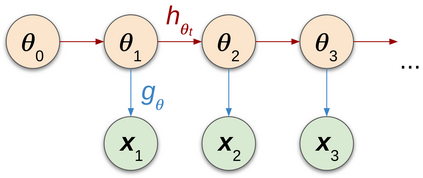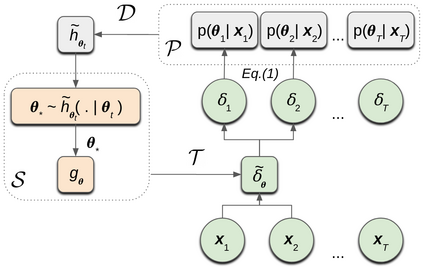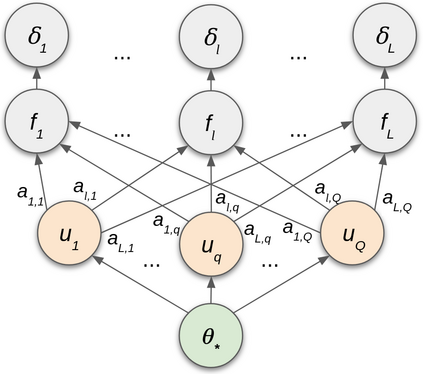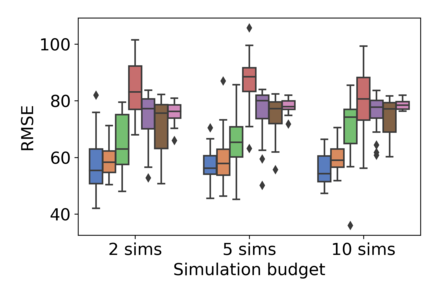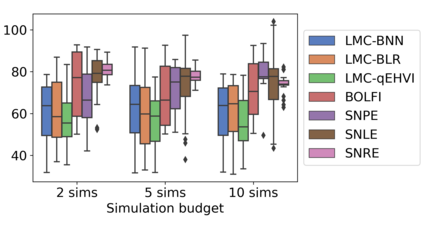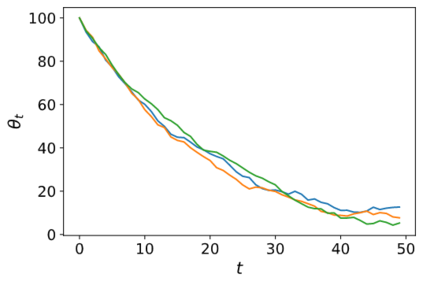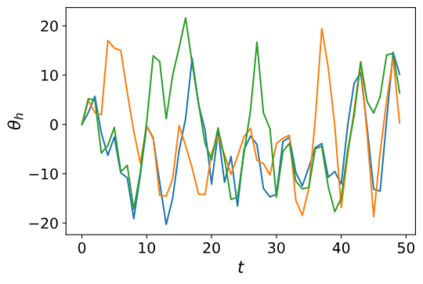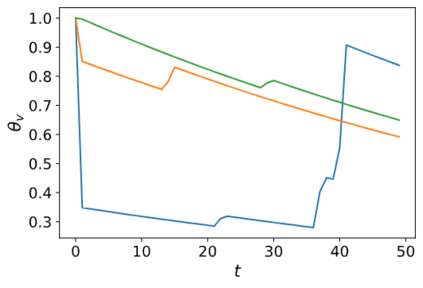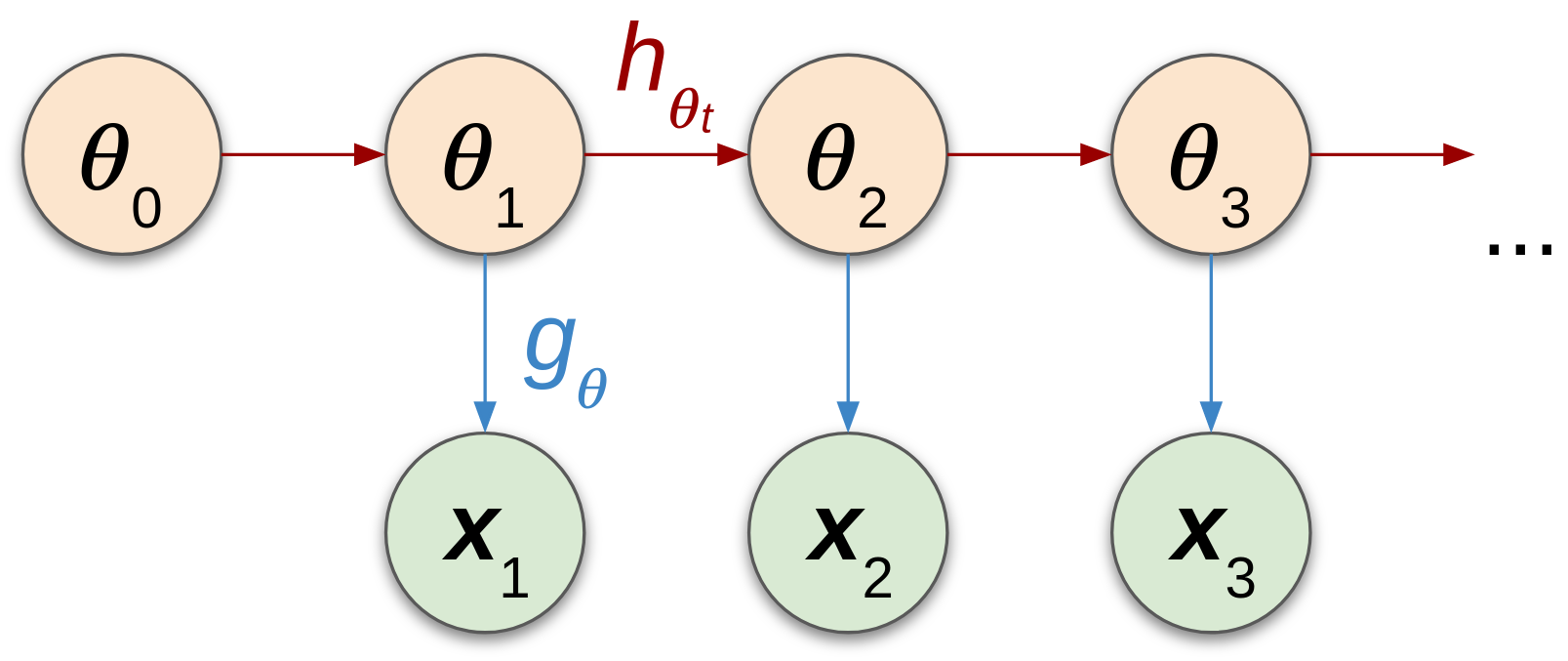Likelihood-free inference (LFI) has been successfully applied to state-space models, where the likelihood of observations is not available but synthetic observations generated by a black-box simulator can be used for inference instead. However, much of the research up to now have been restricted to cases, in which a model of state transition dynamics can be formulated in advance and the simulation budget is unrestricted. These methods fail to address the problem of state inference when simulations are computationally expensive and the Markovian state transition dynamics are undefined. The approach proposed in this manuscript enables LFI of states with a limited number of simulations by estimating the transition dynamics, and using state predictions as proposals for simulations. In the experiments with non-stationary user models, the proposed method demonstrates significant improvement in accuracy for both state inference and prediction, where a multi-output Gaussian process is used for LFI of states, and a Bayesian Neural Network as a surrogate model of transition dynamics.
翻译:在州-空间模型中,观测的可能性不大,但黑盒模拟器产生的合成观测可以用来进行推断。然而,到目前为止,许多研究都局限于案例,可以事先制定州过渡动态模型,模拟预算不受限制。当模拟计算费用昂贵,且马尔科维亚州过渡动态未确定时,这些方法无法解决州推论问题。本稿中提议的方法通过估计过渡动态并利用州预测作为模拟建议,使那些模拟次数有限的州能够进行模拟。在非静止用户模型的实验中,拟议方法显示,州推论和预测的准确性都大有改进,州推论和预测都使用了多输出值高斯进程,而巴伊西亚神经网络作为过渡动态的替代模型,因此无法解决州推论问题。

